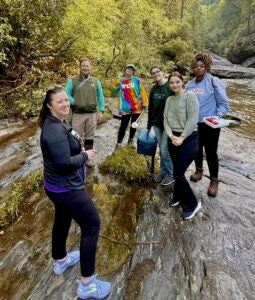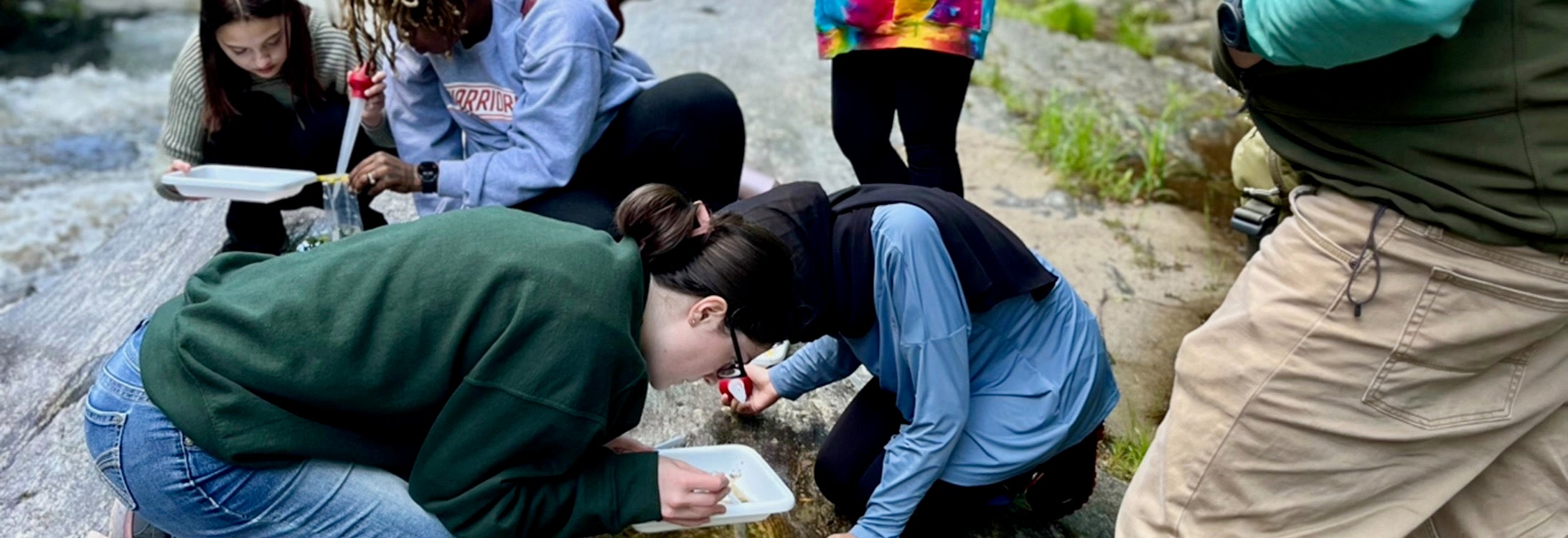Training camp held at Highlands Biological Station
Students and project leaders from East Carolina University and Western Carolina University converged at Highlands Biological Station in western North Carolina earlier in May to further understand impacts of La Crosse virus and other aspects of mosquito biology.

The group stands at a rock pool.
This was a key part in the National Institutes of Health-funded research project — focused on impacts of La Crosse encephalitis — with Dr. Stephanie Richards as principal investigator, and for doctor of public health student Chelsea Atkins’ dissertation project. Richards is a professor of environmental health science in ECU’s Department of Health Education and Promotion.
Aya Hageb (public health) and Quinn Dickens (environmental health) were the two from ECU among five undergraduate student trainees to participate. Camp covered aspects of mosquito biology, field collection techniques, mosquito identification, La Crosse encephalitis epidemiology and data management.
“It was great to see the ECU and WCU undergraduate students work together and gain hands-on field and laboratory experience during this ‘Vector Biology Boot Camp,’” Richards said. “The students were introduced to the world of mosquitoes and are gaining a better understanding of the impacts of the most prevalent locally transmitted mosquito-borne virus (La Crosse virus) in North Carolina. This project builds on previous work examining the impacts of La Crosse encephalitis in western North Carolina with the goal of reducing morbidity and mortality associated with this pediatric vector-borne disease.”
Atkins led the training on data management. Madeleine Craig, WCU MS biology student, assisted with mosquito identification sessions. The co-PI on the NIH-supported project is Dr. Brian Byrd, WCU environmental health professor. The WCU undergraduate trainees for this year are Elsa Derosa, Rhys Luffman and Chloe Bolt.

The undergraduate trainees at Highlands Biological Station.
